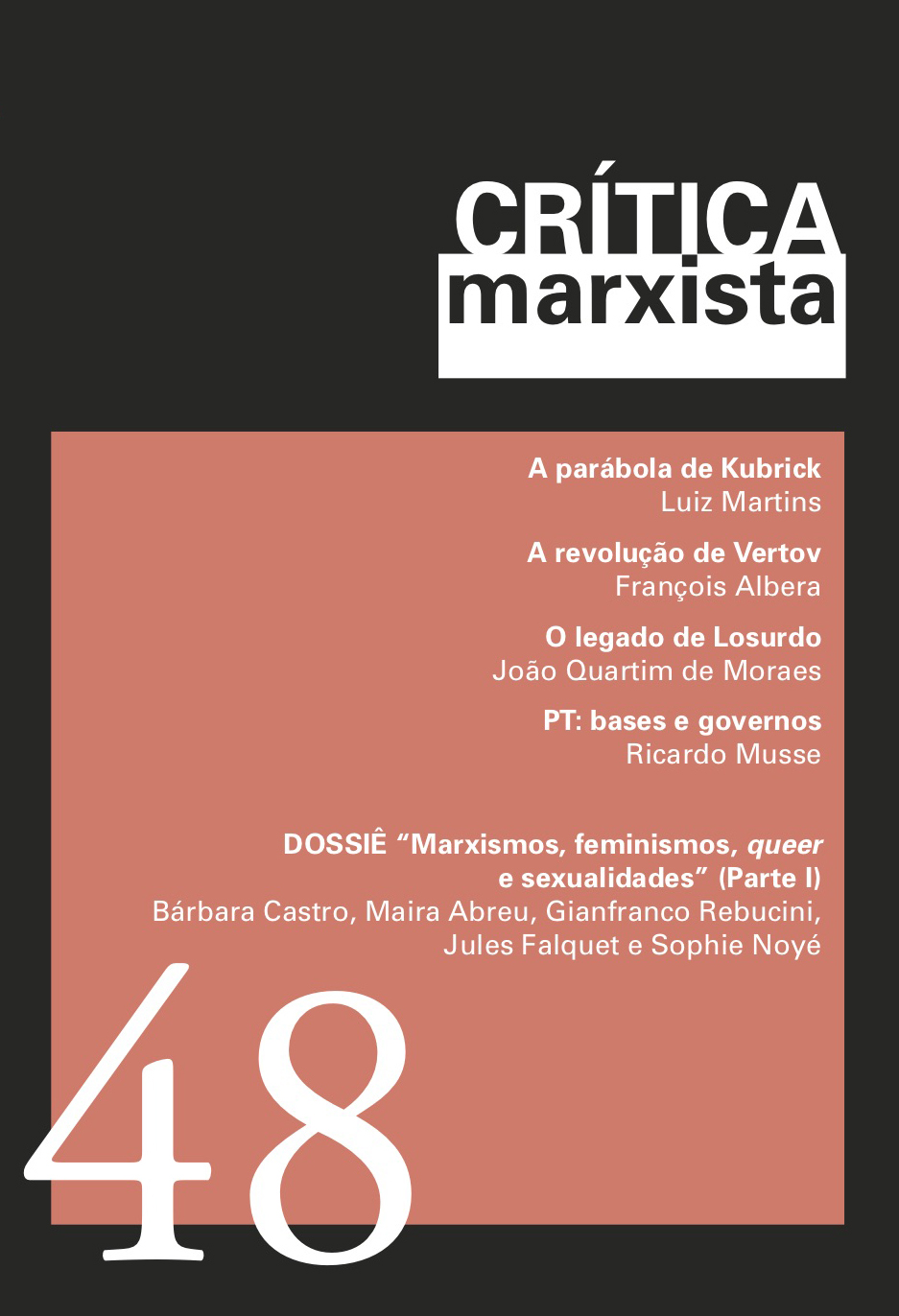Abstract
Classical fascism is currently identified as a regime maximally repressive. Thus, how dare to admit that a new fascism might update through hedonism and deregulation? Nevertheless, such is the forerunning thesis of Kubrick’s Clockwork Orange (1971), one of the first films to picture the reversion of terms and expectations arose by the movement of May 1968. To determine new fascism, one needs to establish the correspondences between the aesthetics of violence, inherent to classical fascism and new terms, that
reappears in Kubrick’s film under the guise of the street gangs’ spontaneity, whose actions are not so far from the Reichskristallnacht (1938), and the coming true of the imaginary, under mixed signs of immediacy and of travesty actions, interacts as the newest counterpart of violence. Such are highly current and narcissistic issues. So, Clockwork Orange works as a laboratory for Kubrick. What is synthesized in his “political-science-fiction”? The after-effects of the defeat of the 1968 political revolution. The plunder taken by capital was the Welfare State dismantling and henceforth the recycled State: a criminal organization in symbiosis with the media, at the service of the absolutism of the market.
References
BANAJI, Jairus. Fascism as a Mass-Movement: Translator’s Introduction. Historical Materialism, Londres, v.20, n.1, 2012, p.133-143.
FOUCAULT, Michel. Il faut défendre la société: cours au Collège de France (1975-1976). Ed. Mauro Bertani e Alessandro Fontana, sob a direção de François Ewald e Alessandro Fontana. Paris: Hautes Études/Seuil-Gallimard, 1997. [Ed. port.: É preciso defender a sociedade. Lisboa: Livros do Brasil, 2006.]
FOURASTIÉ, Jean. Les trente glorieuses ou la révolution invisible de 1946 à 1975. Paris: Fayard/Pluriel, 2011.
MARTINS, Luiz Renato. El triste fin del estado de bienestar: la parábola de Kubrick. In: PINCHEIRA, Iván et al. (eds.). Máquinas del saber, mecanismos del poder, prácticas de subjetivación. Actas de la 1a Jornada Transdisciplinar de Estudios en Gubernamentalidad/Núcleo de Estudios en Gubernamentalid de la Universidad de Chile. Santiago: Ediciones Escaparate, 2016. p.59-64.
PASOLINI, Pier Paolo. Il genocidio. Rinascita, 27 set. 1974. In: Scritti corsari. Milão: Garzanti, 1975. p.281-287.
PASOLINI, Pier Paolo. La prima, vera rivoluzione di destra. Tempo Ilustrato, 15 jul. 1973. In: Scritti corsari. Milão: Garzanti, 1975. p.24-30.
PASOLINI, Pier Paolo. Scritti corsari. Milão: Garzanti, 1975.
PINCHEIRA, Iván et al. (eds.). Máquinas del saber, mecanismos del poder, prácticas de subjetivación. Actas de la 1a Jornada Transdisciplinar de Estudios en Gubernamentalidad/Núcleo de Estudios en Gubernamentalid de la Universidad de Chile. Santiago: Ediciones Escaparate, 2016.
ROSENBERG, Arthur. Fascism as a Mass-Movement (1934). Trad. Jairus Banaji. Historical Materialism, Londres, v.20, n.1, 2012, p.144-189.

This work is licensed under a Creative Commons Attribution 4.0 International License.
Copyright (c) 2019 Luiz Renato Martins
